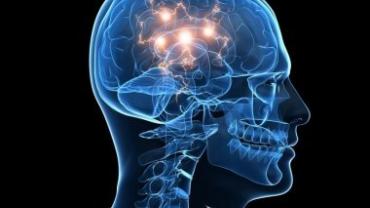
Owing to the many stresses of modern life patients are increasingly presenting with psychological rather than physical ailments. For those who do not require intensive pharmacotherapy it's important to be familiar with nutritional supplements that might be effective in helping them maintain balanced moods. Supplements can't actually remove stressors or change difficult circumstances in people's lives but they can provide a temporary boost to help individuals better navigate tough times.
Clinical depression takes many forms but there are also a myriad of ways in which mild subclinical depression may manifest. One such way is mild anhedonia the loss of feelings of pleasure and joy. People with this type of anhedonia often do not require pharmaceutical intervention. They are able to hold down jobs socialize well participate in society at large and generally interact with the world free of significant challenges. On the outside they seem fine. But inside for lack of a better term there is a deep and pervasive sense of blah. They no longer look forward to things they're unmotivated and they've lost feelings of pleasure from activities they previously enjoyed. It's as if there's a little black cloud hanging over them yet they don't manifest some of the classic signs and symptoms of a deeper and more pathologic depression such as weight gain or loss distorted sleep patterns (either insomnia or oversleeping) social withdrawal etc.
These patients may see a health care provider because they simply don't feel their best and probably haven't for a while. And as they do not require pharmaceutical medication or perhaps prefer to avoid it there may be ways to aid them nutritionally and support their neurological health in order to help them feel better. These patients shouldn't have to sacrifice creative time or time spent in hobbies and pursuits they enjoy if a relatively simple supplemental intervention might help them regain a better perspective.
The neurotransmitter serotonin gets most of the attention in discussions about depression and seasonal affective disorder as well as milder forms that might be better described as the blues. Selective serotonin re-uptake inhibitors (SSRIs) are a common go-to therapy for these conditions as are supplemental tryptophan and 5-HTP. But serotonin certainly isn't the only neurotransmitter involved in cultivating a positive mental outlook. One that deserves serious consideration when working with patients who've lost their mojo is dopamine.
Dopamine is widely recognized for its role in the reward pathways in the brain. As such it is possible that dopamine deficiency or dysregulation plays a role in mild forms of anhedonia and depression. In fact studies support dopamine deficits as influencing the reduced sensitivity to rewards that is often manifested in depression. There are many pharmaceutical drugs designed to help regulate dopamine levels most of them used in Parkinson's disease. But there are natural substances that may also support healthy dopamine activity.
Mucuna pruriens also known as cowhage or velvet bean is a tropical legume native to southern China and eastern India but is now grown throughout the tropics and in sub-tropical regions. The most interesting feature of this bean is that the mature seeds contain between 4-7% pre-formed L-dopa the precursor to dopamine.
It is recognized that substances that increase dopamine levels result in mood elevation while drugs that reduce dopamine levels or block dopamine receptors (such as neuroleptics) can lead to dysphoria or depressed mood. Medications that increase dopamine levels in the brain by inhibiting dopamine reuptake or acting as dopamine agonists have proven to have antidepressant effects.
Studies have demonstrated that compared to healthy controls depressed patients including those with anhedonia have reduced cerebrospinal fluid levels of homovanillic acid the primary metabolite of dopamine in the central nervous system. Depression has also been associated with defects in the dopamine transporter.
Ayurvedic medicine has employed Mucuna pruriens as an aphrodisiac and for supporting male fertility and sexual health. These effects have been verified in modern animal research however the effects seem to be due only in part to the mucuna's L-dopa content and may be related more to the bean's antioxidant capacity and other botanical constituents.
Much of the research to date on Mucuna pruriens has been focused on Parkinson's disease. It will be interesting to see if future studies explore the possibility of boosting dopamine levels using nutritional supplements for the purpose of helping with the mild forms of depression that are becoming increasingly common in our overtaxing environments.